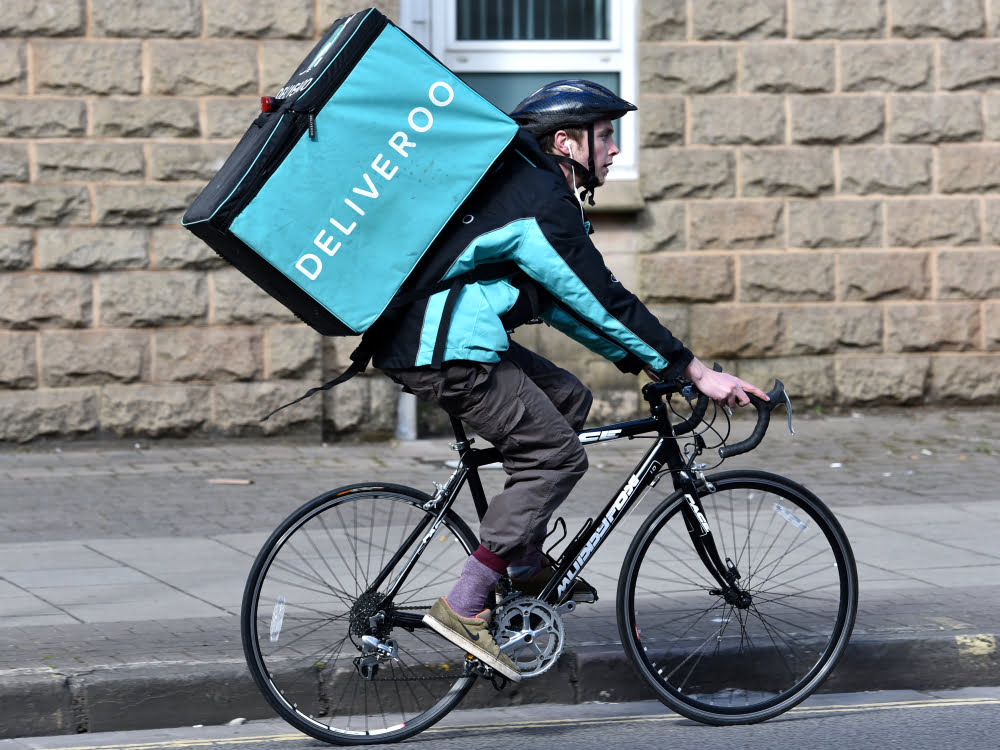The Tax and Customs Administration has great difficulty collecting tax from the deliverers.
Platform companies Uber Eats and Deliveroo provide undocumented meal deliverers with work in the Netherlands on a large scale, according to research from NRC. Six years ago they didn't exist, the men with bags, except for a single pizza delivery person. We should not confuse both companies with those other delivery companies with the orange bags. Thuisbezorgd has its deliverers in paid employment, neatly with a roster, an hourly wage, and payment of employer's premiums. According to the research, Uber and Deliveroo are avoiding those premiums due to extensive flexibility.
digitally
Working illegally for Deliveroo and Uber Eats turns out to be child's play. Meanwhile, they are invisible to authorities, they are wrong-way drivers. The platforms want to see them as little as possible. There is no office for them, no counter, rarely someone picks up a telephone. Their contact with the companies is completely digital. The tax authorities cannot even check with Uber or Deliveroo and so the men with bags also became elusive for the tax authorities.
The Tax and Customs Administration also recognizes the image. “Many meal deliverers remain invisible because they never file tax or VAT returns,”
The lockdowns of recent years accelerated everything for platform companies. During the curfew, the deliverers were allowed to go outside with their 'essential profession for society'. At the beginning of 2013, the Chamber of Commerce counted only 173 of these types of (one-man) businesses in the whole of the Netherlands, by mid-2022 there will already be 3.500. And that's just the people who have properly registered as deliverers. Deliveroo says it has 4.500 active accounts, Uber, which delivers to many more cities, won't give a number.
missable luxury
There is a good chance that that market will change in the coming period. The energy bill has already become unaffordable for many in the target group, interest rates are rising, venture capital is becoming scarce, the labor market is tight, ordering food is becoming a luxury for more people. Deliveroo, which experienced a disappointing IPO last year, is considering selling this fall leave from The Netherlands.
NRC spoke for them article more than sixty food delivery companies. The researchers were given access to app conversations, Facebook messages and correspondence with the platforms. In addition, they spoke with employees at the headquarters of the platforms, the Labor Inspectorate, trade union FNV, immigration service IND and the tax authorities.
NRC presented its findings to the Labor Inspectorate. He recognizes the image. According to a spokesperson, the inspectorate suspects that "a fair number of illegal immigrants" work at the "larger platforms" in particular and that accounts of delivery drivers are lent out "regularly".
The companies say they strictly check the identity of their deliverers. The Labor Inspectorate does not agree at all and believes that undocumented migrants can find work 'relatively easily' via a platform company. The exchange of accounts can be seen in a food delivery Facebook group.
Spokespersons for Deliveroo and Uber say they have a zero-tolerance policy if they discover that an account is being shared with someone without the appropriate papers. Deliveroo says it is not aware that this is happening on a large scale. The company does allow deliverers to be replaced by someone who is entitled to work in the Netherlands.
Meal deliverer Deliveroo was previously fined 176.000 euros by the Inspectorate SZW. The company had meals delivered by 2018 foreign employees without work permits in 22, according to an investigation by the inspectorate.



